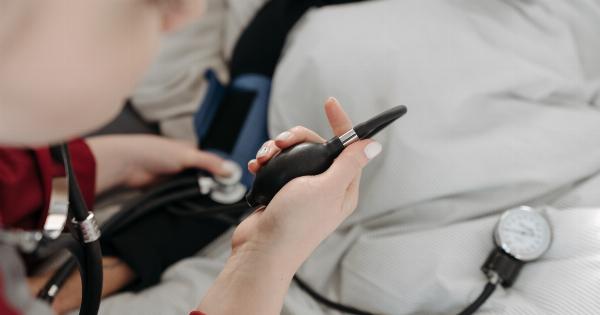Sexual headaches, also referred to as coital cephalalgia, are a type of headache that occur in relation to sexual activity. These headaches can be debilitating and may significantly impact one’s sexual life.
It is important to understand the different types of sexual headaches and how to effectively manage and prevent them. In this article, we will discuss various types of sexual headaches and provide helpful strategies to cope with them.
1. Pre-orgasmic Headaches
Pre-orgasmic headaches are characterized by a sudden and severe throbbing pain in the head that occurs prior to orgasm. This type of headache typically lasts for a few minutes to a few hours and is often felt on both sides of the head.
Stress, anxiety, or overexertion can trigger pre-orgasmic headaches.
2. Orgasmic Headaches
Orgasmic headaches are intense headaches that develop during sexual climax or immediately after orgasm. The pain is often described as explosive or pulsating and can last for several minutes or even a few hours.
Orgasmic headaches usually occur suddenly and peak within a minute.
3. Post-orgasmic Headaches
Post-orgasmic headaches commence within a few minutes to a couple of hours after sexual activity. The pain is typically throbbing and may last for several hours.
Dehydration, fatigue, or a sudden drop in blood pressure are known triggers for post-orgasmic headaches.
4. Exertional Headaches
Exertional headaches are triggered by strenuous physical activity, including sexual activity. These headaches are often accompanied by throbbing pain, which worsens during exertion and gradually fades away at rest.
If you experience exertional headaches during sexual activity, it is important to seek medical attention to rule out any underlying causes.
5. Primary Sexual Headaches
Primary sexual headaches are not caused by any underlying medical condition. These headaches are more common in individuals who have a history of migraines or tension headaches.
The pain is typically bilateral and can occur before, during, or after sexual activity.
6. Secondary Sexual Headaches
Secondary sexual headaches occur due to an underlying medical condition, such as an aneurysm, brain tumor, or blood vessel abnormalities. These headaches may be more severe and out of the ordinary compared to primary sexual headaches.
It is crucial to consult a healthcare professional if you experience secondary sexual headaches.
7. Strategies for Dealing with Sexual Headaches
Now that we have discussed the different types of sexual headaches, let’s explore some effective strategies to manage and prevent them:.
8. Communicate with Your Partner
Openly communicate with your partner about your sexual headaches and explain what triggers them. By discussing your condition, you can work together to find alternative sexual activities or positions that may minimize the likelihood of a headache.
9. Practice Relaxation Techniques
Stress and anxiety can contribute to sexual headaches. Prioritize relaxation techniques such as deep breathing exercises, meditation, or taking a warm bath before engaging in sexual activity.
These practices can help reduce tension and decrease the likelihood of experiencing a headache.
10. Stay Hydrated
Dehydration can trigger headaches, including sexual headaches. Ensure you stay adequately hydrated throughout the day, especially before engaging in sexual activity.
Drink plenty of water and avoid excessive alcohol consumption, as dehydration worsens headaches.
11. Take Breaks or Pace Yourself
If you tend to experience headaches during prolonged sexual activity, take periodic breaks or pace yourself to avoid overexertion. Listen to your body’s cues and do not push yourself beyond your limits.
12. Manage Underlying Health Conditions
If you have an underlying medical condition contributing to your sexual headaches, it is important to manage and treat it under the guidance of a healthcare professional.
By effectively managing the underlying condition, you may be able to reduce the frequency and intensity of sexual headaches.
13. Consider Medication
In some cases, healthcare professionals may prescribe medication to prevent or relieve sexual headaches. These medications may include beta-blockers, indomethacin, or triptans.
However, it is essential to consult with a healthcare professional before starting any medication to ensure it is safe and appropriate for your specific situation.
Conclusion
Sexual headaches are a common occurrence for many individuals, but they can significantly impact one’s sexual life.
By understanding the various types of sexual headaches and implementing effective strategies to manage and prevent them, individuals can enjoy a fulfilling sexual life while minimizing discomfort and pain. Remember to communicate openly with your partner, prioritize relaxation techniques, stay hydrated, take breaks when needed, manage any underlying health conditions, and consult a healthcare professional if necessary.
With the right approach, it is possible to navigate the challenges of sexual headaches and experience satisfying and pleasurable sexual encounters.


























